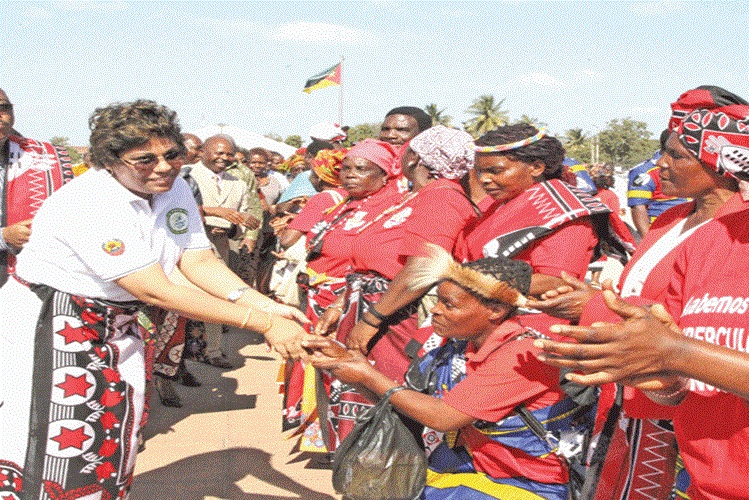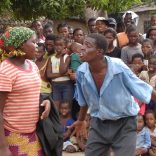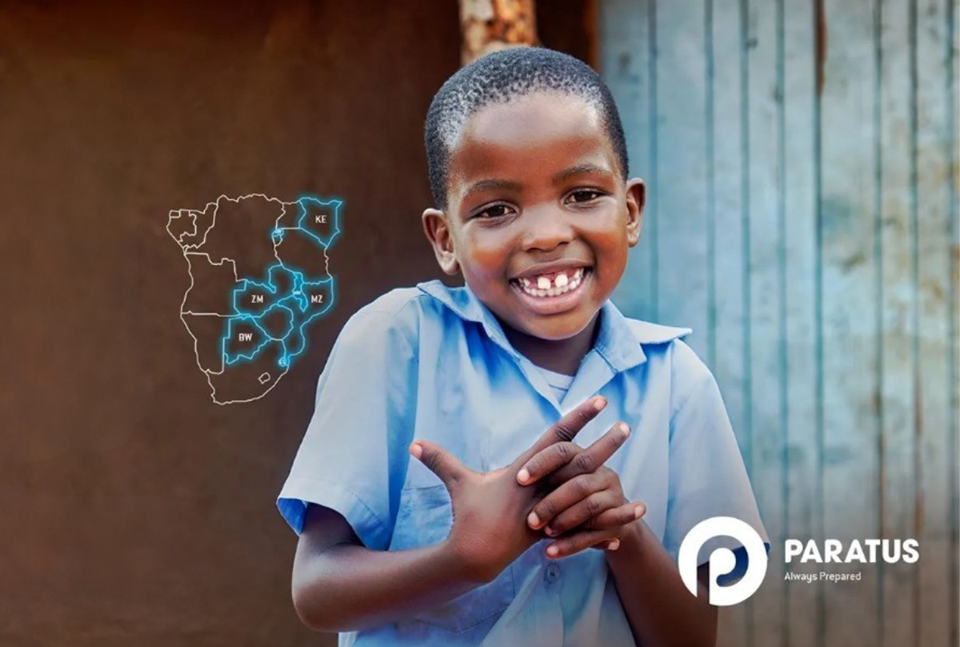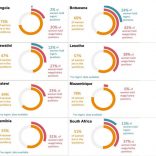Mozambique: Theatre of the Oppressed workshop in Mecula for displaced persons and host communities
Africa Natural Medicine Day – Mozambican traditional healing seeks regulation

Folha de Maputo / Minister of Health Nazira Abdula (left) with traditional healers, yesterday in Maputo, at the celebrations of African Traditional Medicine Day
Yesterday, August 31, was African Traditional Medicine Day – and traditional healers in Mozambique are demanding better regulation of the sector.
With more and more people using their services, members of the Mozambican Traditional Healers Association (AMETRAMO) are concerned about the proliferation of “charlatans” who claim to be able to solve any health problem.
“What we seek is a greater connection with conventional medicine, because together we can save lives. As regards the healers who come from the Great Lakes region, a study should be undertaken and we must unite to fight them, because they bring us problems,” said healer Julieta Antonio.
Cacilda Niquice, president of AMETRAMO, argues that only with the integration of traditional doctors into the national health system will permit better regulation of alternative medicine practitioners.
“We would like traditional doctors to have offices in hospitals because there are diseases that are not cured in hospitals, but which we as traditional healers could cure. So we must work together,” Niquice says.
The scenario is not improved by the fact that the Institute of Traditional Medicine does not have technical and laboratory capacity to test the toxicity of the plants being sold and used in traditional medicine. There are about 5,500 species of plant in the country, of which half are considered medicinal.
While the sector is not regulated, Health Minister Nazira Abdula says that there are already ongoing actions aimed at integration.
“What we have, and what has a big impact, is a link with the traditional medicine practitioners associations. They work in coordination with us, and we give ongoing training and knowledge about chronic diseases that we know have no cure,” the minister says.
Since 1978, the World Health Organisation (WHO) has advocated that countries with development and health coverage problems work in partnership with other stakeholders at community level to improve primary health care coverage, a theme taken up by Djamila Cabral, WHO representative in Mozambique.












Leave a Reply
Be the First to Comment!
You must be logged in to post a comment.
You must be logged in to post a comment.